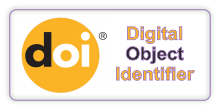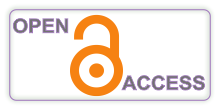If you face issue in Submission Online, please send manuscript to email: editor@shodhgyan.org
Quick Access
Follow Us On


Online Submissions
Already have a Username/Password for the "ShodhGyan-NU: Journal of Literature and Culture Studies"?
Go to Login
Need a Username/Password?
Go to Registration
Registration and login are required to submit items online and to check the status of current submissions.
Author Guidelines
Carefully read the submission guidelines as follows:
A. General Requirements
B. Structure of The Manuscript
The manuscript must be qualified and suggested present follow the structure:
For Hindi: Submit in Kruti Dev 10 with font size 14 point (Include in English: Title, Abstract, Keywords, APA style References)
Copyright Notice
License and Copyright Agreement
In submitting the manuscript to the journal, the authors certify that:
Copyright
Authors who publish with ShodhGyan-NU: Journal of Literature and Culture Studies agree to the following terms:
Licensing for Data Publication
ShodhGyan-NU: Journal of Literature and Culture Studies use a variety of waivers and licenses, that are specifically designed for and appropriate for the treatment of data:
Other data publishing licenses may be allowed as exceptions (subject to approval by the editor on a case-by-case basis) and should be justified with a written statement from the author, which will be published with the article.
Open Data and Software Publishing and Sharing
The journal strives to maximize the replicability of the research published in it. Authors are thus required to share all data, code, or protocols underlying the research reported in their articles. Exceptions are permitted but have to be justified in a written public statement accompanying the article.
Datasets and software should be deposited and permanently archived in appropriate, trusted, general, or domain-specific repositories (please consult http://service.re3data.org and software repositories such as GitHub, GitLab, Bioinformatics.org, or equivalent). The associated persistent identifiers (e.g., DOI, or others) of the dataset(s) must be included in the data or software resources section of the article. Reference(s) to datasets and software should also be included in the reference list of the material with DOIs (where available). Where no domain-specific data repository exists, authors should deposit their datasets in a general repository such as ZENODO, Dryad, Dataverse, or others.
Small data may also be published as data files or packages supplementary to a research article. However, the authors should prefer, in all cases, a deposition in data repositories.
If you face issue in Submission Online, please send manuscript to email: editor@shodhgyan.org
Quick Access
Follow Us On


|
